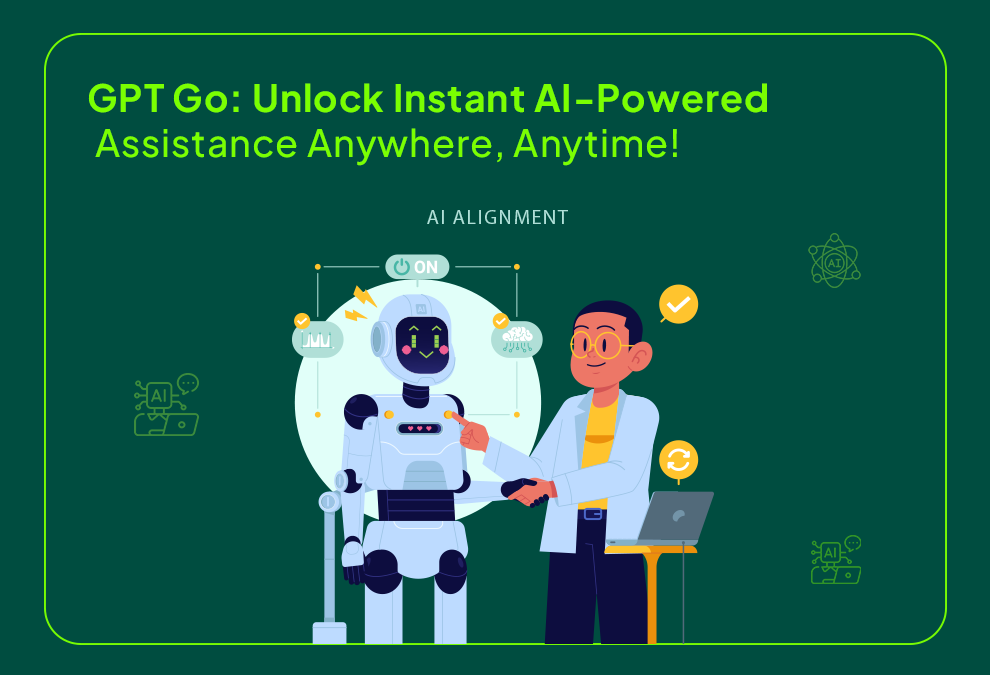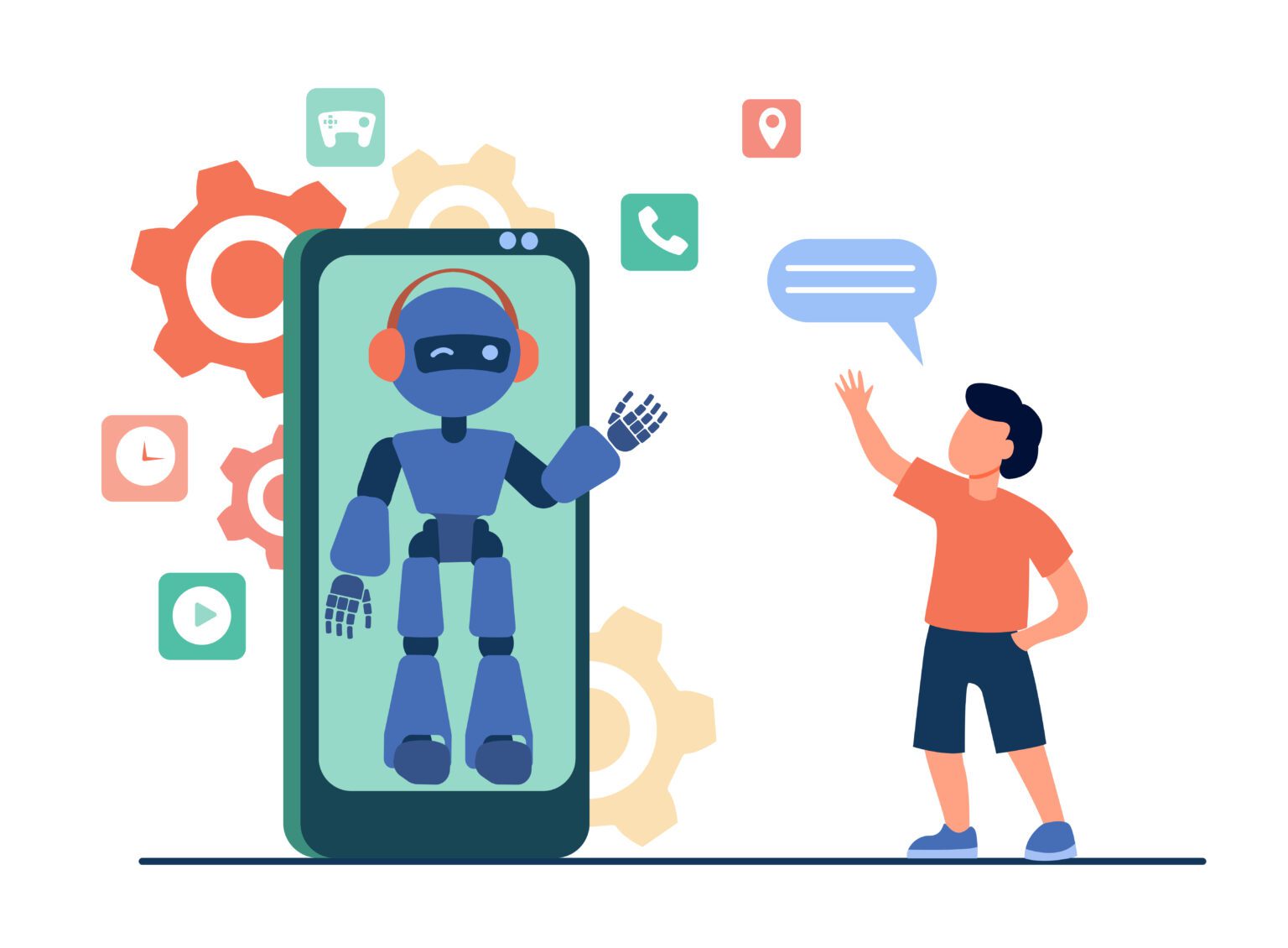
The Future of Conversational AI: A Look at GPT Go
Explore how GPT Go could revolutionize conversational AI, mobile technology, and user interaction with AI applications
Conversational AI has significantly changed how we interact with technology, enabling us to rely on voice assistants, chatbots, and smart devices for various daily tasks. However, as AI technology evolves, a new player has emerged on the scene: GPT Go. Optimized for mobile devices, GPT Go aims to make AI interactions quicker, smoother, and more accessible. From voice recognition to personalized assistance, GPT Go promises to revolutionize conversational AI and elevate mobile AI interactions to unprecedented levels.
What is GPT Go?
GPT Go is the latest advancement in AI technology, specifically designed for mobile platforms. Unlike its predecessors, GPT Go focuses on delivering real-time AI conversations with minimal delay. This version of GPT offers advanced language processing without requiring heavy computing resources, making it ideal for smartphones and tablets.
The core idea behind GPT Go is to bring powerful AI experiences to mobile users. Instead of relying on large-scale models that demand significant processing power, GPT Go operates efficiently with smaller hardware. Whether it’s for virtual assistance, voice recognition, or text conversations, GPT Go provides users with faster responses and smoother interactions—perfect for on-the-go usage.
The Evolution of GPT Models

To fully appreciate the significance of GPT Go, it’s essential to understand the evolution of AI language models. The journey began with GPT-1, which introduced pre-trained models capable of understanding and generating human-like text. However, it was limited in engaging in complex dialogues.
The next leap came with GPT-2, which brought substantial improvements. It could handle a wider range of conversations, making AI feel more natural. GPT-2 expanded the applications of AI beyond simple responses, allowing for more complex use cases, including content creation.
The breakthrough moment occurred with GPT-3. With its staggering 175 billion parameters, GPT-3 elevated AI capabilities to unprecedented heights. It could comprehend context, emotions, and nuances, positioning it as one of the most advanced conversational AIs available. However, running such a large model on mobile platforms wasn’t feasible.
Enter GPT Go. It’s designed to offer the language understanding capabilities of GPT-3 in a more efficient package, specifically crafted for mobile devices without sacrificing quality.
Why GPT Go is Perfect for Mobile Users

Mobile platforms have traditionally struggled to handle large-scale AI models due to their demanding requirements for powerful processors and ample memory—resources that smartphones often lack. GPT Go addresses this challenge by facilitating faster and lighter AI interactions.
Key Advantages of GPT Go for Mobile Users:
- Instant Feedback: The faster processing capabilities mean users receive quick responses to voice commands or typed queries, enhancing the user experience.
- Optimized for Mobile Hardware: GPT Go operates efficiently on devices with limited resources, such as smartphones and tablets, ensuring accessibility for a broader range of users.
- Real-Time Conversations: Whether chatting with a virtual assistant or interacting with a customer service bot, GPT Go creates a more immediate and natural conversation flow, making AI interactions feel more intuitive.
In essence, GPT Go allows for more seamless interactions on mobile devices, without the need for a constant internet connection or significant computing power.
Applications of GPT Go

GPT Go isn’t just about faster conversations—it has practical applications across various industries, driven by its ability to deliver real-time, natural conversations, making it ideal for mobile use cases.
1. Personal Assistants
One of the primary uses of GPT Go is in personal assistants. Imagine a smart assistant that not only understands your requests but can also offer personalized suggestions based on past interactions. With GPT Go, virtual assistants like Siri or Google Assistant can evolve, delivering better responses and facilitating smoother conversations.
2. Customer Service
In the realm of customer service, quick and accurate responses are paramount. GPT Go can power chatbots that provide real-time assistance, understanding customer intent more effectively than older AI models. This reduces wait times and enhances customer satisfaction, making the overall customer experience much more efficient.
3. Healthcare
Healthcare applications can leverage GPT Go to assist patients in managing appointments, answering basic medical questions, and even providing guidance on medication. Its ability to run efficiently on mobile platforms means patients can access support anytime, anywhere, thus enhancing healthcare accessibility.
4. Education
The education sector stands to benefit significantly from GPT Go. Interactive learning apps can use this technology to offer students instant feedback, answer questions, and assist with understanding difficult concepts in real-time. This can greatly enhance the learning experience and make education more engaging.
Challenges for GPT Go

While GPT Go represents a significant advancement in conversational AI, several challenges persist.
1. Data Privacy
Data privacy remains a significant concern. Mobile users interact with AI through personal devices, often sharing sensitive information. Ensuring that these interactions are secure is essential to maintaining user trust.
2. Ethics in AI
Another challenge is ensuring that GPT Go operates free from bias and ethical issues. AI systems can unintentionally reinforce harmful stereotypes or provide misleading information. Developers must ensure that GPT Go is trained responsibly, enabling it to recognize potentially harmful or biased responses.
3. Resource Management
Despite its optimizations, GPT Go still requires a balance between performance and hardware capabilities. Developers must continue refining the model to ensure it runs smoothly, even on older or less powerful devices.
Looking Ahead: The Future of GPT Go

As conversational AI advances, GPT Go could play a pivotal role in shaping the future of mobile interactions. Its lightweight design makes it perfect for smartphones dominating the global tech landscape. In the coming years, GPT Go may be integrated into more applications—from enhanced virtual assistants to smarter mobile customer service solutions.
Additionally, GPT Go’s capability to understand context and deliver personalized responses makes it an invaluable tool for businesses looking to offer tailored experiences to their customers. As mobile technology improves, the potential for GPT Go to provide increasingly sophisticated, real-time AI experiences will grow exponentially.
Conclusion
GPT Go embodies the next generation of conversational AI, specifically engineered for mobile platforms. Its speed, efficiency, and ability to facilitate real-time conversations position it as a game-changer for mobile AI interactions. Whether in personal assistants, customer service, or healthcare, GPT Go is set to revolutionize how we engage with AI in our daily lives. As AI continues to evolve, GPT Go could set the standard for mobile AI, making intelligent, responsive conversations available anytime, anywhere.